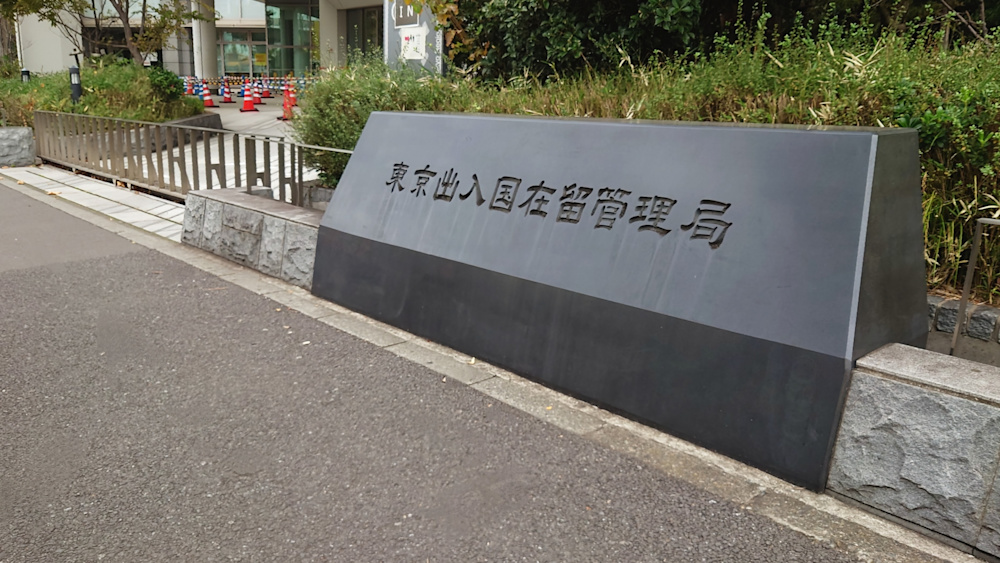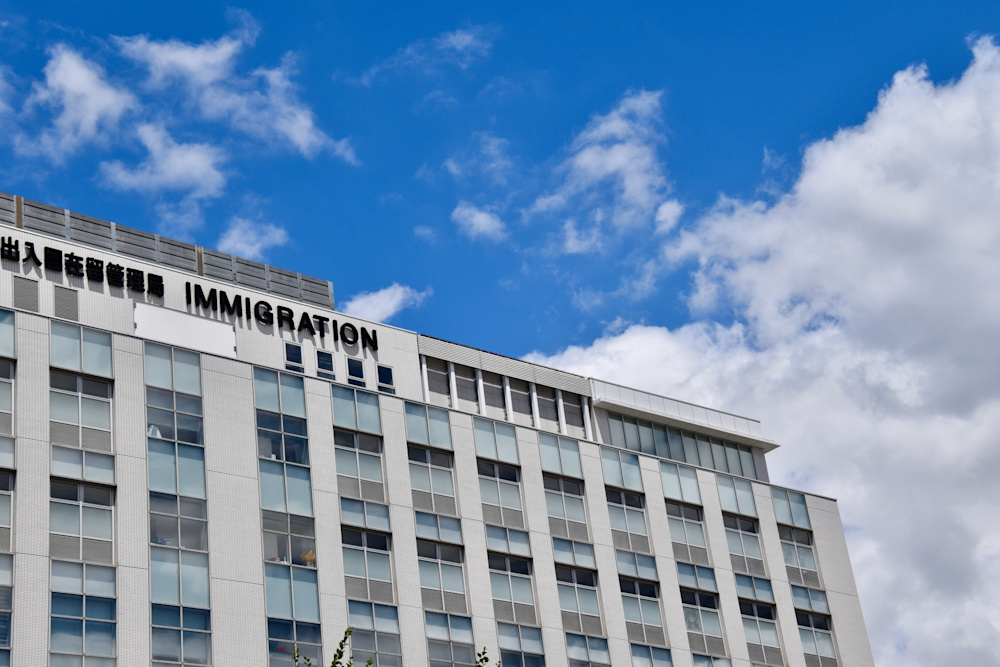Updated February 12, 2025
Change of Status of Residence in Japan: A How-to Guide
Living in Japan as a foreign resident comes with various legal responsibilities, including maintaining an up-to-date residence card.
One critical aspect of this is notifying the Immigration Bureau about any changes to your “status of residence.” This process is about informing the government of significant changes in your living situation, so it’s different from renewing or extending your visa.
In this guide, we’ll explain everything you need to know about the notification of change of status of residence Japan procedure and what to do in fringe cases.
Let’s start by taking a look at cases where such notification is required.
In this article: 📝
When Do I Need To Change Status of Residence Japan?
As a foreign resident, you need to inform the Immigration Bureau about certain changes in your life within 14 days of them happening, which are clearly outlined in the law and play a crucial role in ensuring compliance with Japan's residency regulations.
Moving To A New Address
If you move to a new address, it's not enough to just inform your local city office. As we explained in our moving in Japan post, you must also update your residence permit at the local city office where you live.
This might seem like an extra step, but it's an important one. Your residence card is essentially your official identification as a foreign resident, and keeping it up to date ensures that your legal status is accurate. Plus, it's worth noting that failing to report your new address could lead to unnecessary hassles later on, so it's better to get this sorted as soon as you move.
Changes in Employment
Employment changes are another common reason for notification. Whether you land a new job, decide to quit your current one, or your company goes through a big change like merging with another organization or changing its name or location, you must notify the Immigration Bureau. Keeping your residence status aligned with your current job ensures you're on the right side of the law and don’t accidentally end up as an illegal resident.
Educational Status Update
If you're in Japan as a foreign student, keeping the Immigration Bureau informed about your educational status is just as important as notifying them about a job change.
Whether you're enrolling in a new school, transferring to a different institution, or finally graduating, these milestones need to be reflected in your residence status. Other situations when you should inform the Immigration Office include if you take on a part-time job while studying, your relationship with the school changes, or if the school changes its name or location.
Marital Status Changes: Change Visa Status Japan
If you're on a family-related visa, major life events like divorce or the death of a spouse should be reported to the Immigration Bureau as soon as possible. They’ll guide you through the next steps, which may include updating your visa status.
Keep in mind that ignoring this requirement can lead to penalties or even jeopardize your ability to stay in Japan. It may be more difficult to obtain a longer visa or extend it in the future, not to mention that your permanent residency application will also be negatively affected by this. So, it's better to be proactive.
Changes in Basic Personal Information
Another situation you need to notify the Immigration Bureau about is when your basic personal information changes. These include:
Your legal name
Your gender
Your nationality
If one of the above has been changed, your passport will also change, and this requires the information on your Zairyu Card to be updated.
Attempting Additional Activities Other Than Those Permitted

Finally, you’ll have to notify the Immigration Bureau if you want to do activities not covered by your current visa. For instance, a student might want to pick up a part-time job to earn some extra money. In these cases, you'll need to apply for permission to engage in activities outside your visa's scope.
This is a pretty straightforward process, and the immigration Bureau provides clear guidelines and forms to help you get it done quickly. Once approved, you can legally work or participate in additional activities without risking any issues regarding your visa.
Keep in mind that, unlike the other cases, this one requires a “permit” rather than a “notification,” which means that you’re supposed to complete it before attempting any activities that aren’t covered by your visa rather than after.
Notifying The Immigration Bureau About The Change of Status of Residence Japan
Now that you know what situations require notification or updates to your Zairyu Card, let’s see where and how to notify the authorities.
Where To Notify The Change of Status of Residence Japan
To make any updates or notifications regarding your status of residence, the first address you'll need to visit is your nearest Regional Immigration Services Bureau.
These offices are located in major cities like Tokyo, Osaka, Kyoto, and Fukuoka, and they handle a range of immigration-related procedures.
It’s a good idea to confirm which bureau is the closest one and check the language support options available as some offices provide English-speaking assistance. You can find detailed contact information and locations on the Immigration Services Agency Directory. Visiting in person can also give you the chance to ask questions or get clarifications on any part of the process.
Methods of Notification: How To Change Status of Residence Japan
Upon locating the correct immigration bureau, you have three options to notify the government of your status of residence change. So, if you’re wondering, “How do I notify immigration of a job change in Japan?” or “How to change status of residence in Japan?”, here are your options.
Using The Online Portal
One of the most convenient ways to notify the immigration Bureau is through their online portal, especially if you’re comfortable with digital submissions and have the necessary tools at hand.
To use this service, you'll need your residence card and a compatible IC card reader to securely access and submit your information to the system.
The portal streamlines the process, enabling you to complete everything from the comfort of your own home. You can find detailed instructions and access the portal at this link.
Keep in mind that in order to use the portal for the first time, you need to register with your user information first.
Notifying By Post

If you prefer a more traditional method or lack access to the tools required for online submissions, sending your notification by post is another viable option. This involves downloading the necessary forms from the Immigration Bureau's website, carefully filling them out, and mailing them to the appropriate office.
While this method takes a little longer, it's a good choice for those who are not tech-savvy or would rather get this sorted out when they're out and about running errands. You can find more information, such as the address and necessary forms, at the official website of Immigration Services.
Generally, you’ll have to put your Zairyu card in an envelope alongside your notification form and write either “NOTIFICATION ENCLOSED” or “NOTIFICATION FORM ENCLOSED” in red letters on the front of the envelope before mailing it. Keep in mind that you won’t receive a notification if you choose this method, so if you need proof of submission, go with one of the other methods.
Visiting The Bureau in Person
If you prefer face-to-face interactions or need extra guidance, you can visit the Bureau in person.
The staff at the regional Immigration Services Bureau are there to help ensure your documents are in order and answer any questions you might have about the process. This method can be particularly helpful if you find navigating paperwork too complex or are unfamiliar with the procedures.
While it might require more of your time, it's often the most reassuring approach for first-timers, as speaking directly to a human is always better. Just be sure to check the Bureau's hours and location in advance to make your visit go by as smoothly as possible.
Questions About Residence Card Japan: Where Can I Go for Help With My Zairyu Card?
If you ever have questions about your status of residence or need guidance about updating your residence card, the Immigration Bureau is your go-to source. They have regional offices across Japan ready to assist with everything from simple questions to form and application submissions.
These offices are officially called “Regional Immigration Services Bureaus, and you’ll find them in major cities like Tokyo, Osaka, Kyoto, and Fukuoka.
To find your nearest office, consult the Immigration Services Agencies Directory, which lists contact information for Bureaus throughout Japan. If you're not fluent in Japanese, don't worry! Many of these offices offer English language support, especially in larger cities. That said, confirming language availability before visiting or calling is always a good idea.
For those living in one of the major cities of Japan, here are the main contact numbers:
If you’re around the Tokyo area, the phone number for the Tokyo Regional Immigration Services Bureau is 0570-034259 (IP phone, from overseas: 03-5796-7234)
If you’re in Osaka or Kyoto, the phone number for the Osaka Regional Immigration Bureau is 0570-064259 (IP phone, from overseas: 06-4703-2050)
If you’re in or near Fukuoka, the phone number for the Fukuoka Regional Immigration Services Bureau is 092-717-5420.
You can find a list of the contact information for all immigration agencies along with lots of useful information in this official information booklet released by the Immigration Services Agency.

Conclusion: Additional Resources for Zairyu Card for Foreign Residents
Navigating life in Japan as a foreign resident is much easier when you know where to get reliable information.
Luckily, the Immigration Services Agency offers various resources to keep you updated on essential procedures, deadlines, and tips for living in Japan. Their social media channels, like the official Facebook and X (formerly Twitter) pages, provide real-time updates and advice tailored for the foreign community.
If you still have questions about your residence card or status of residence, Regional Immigration Bureau offices are there to assist. Cities like Tokyo, Osaka, Kyoto, and Fukuoka have dedicated Bureaus offering support, but you can always check the official website for contact details and additional resources.
Get Job Alerts
Sign up for our newsletter to get hand-picked tech jobs in Japan – straight to your inbox.







